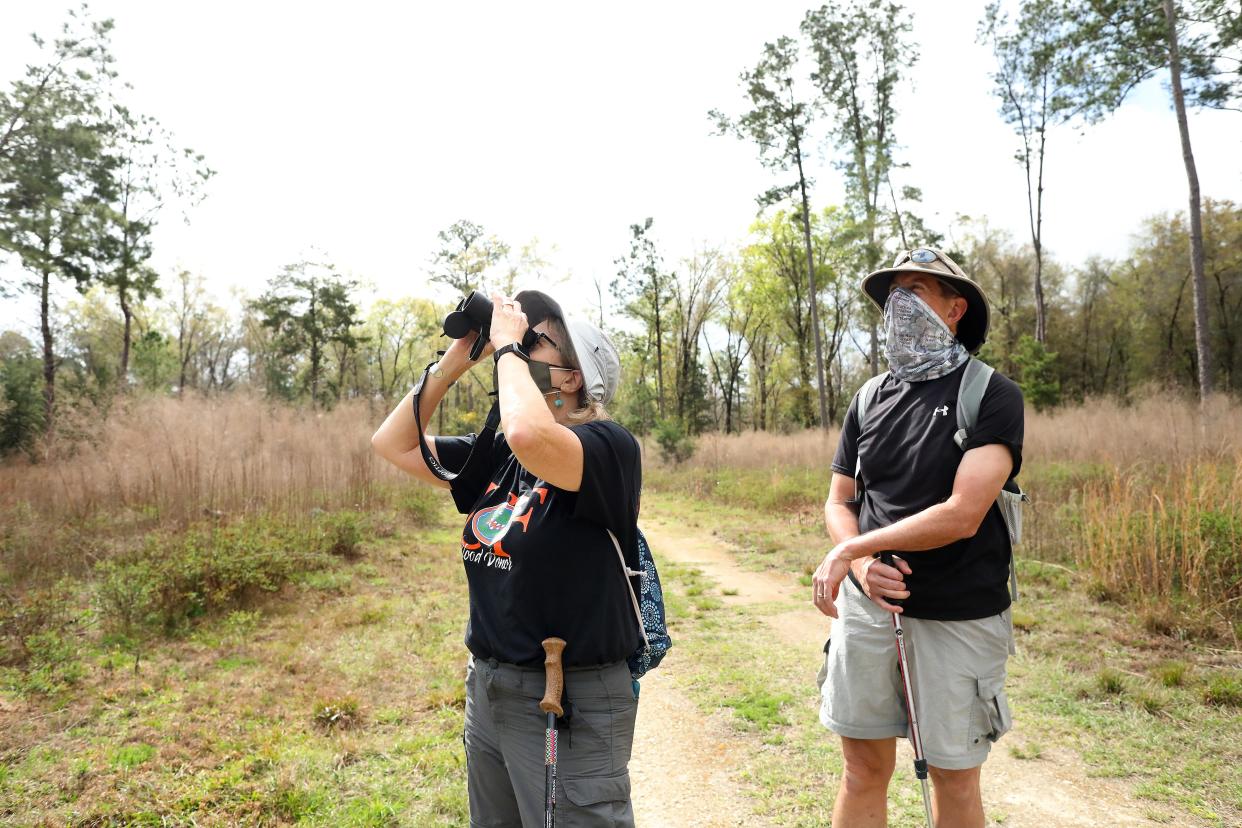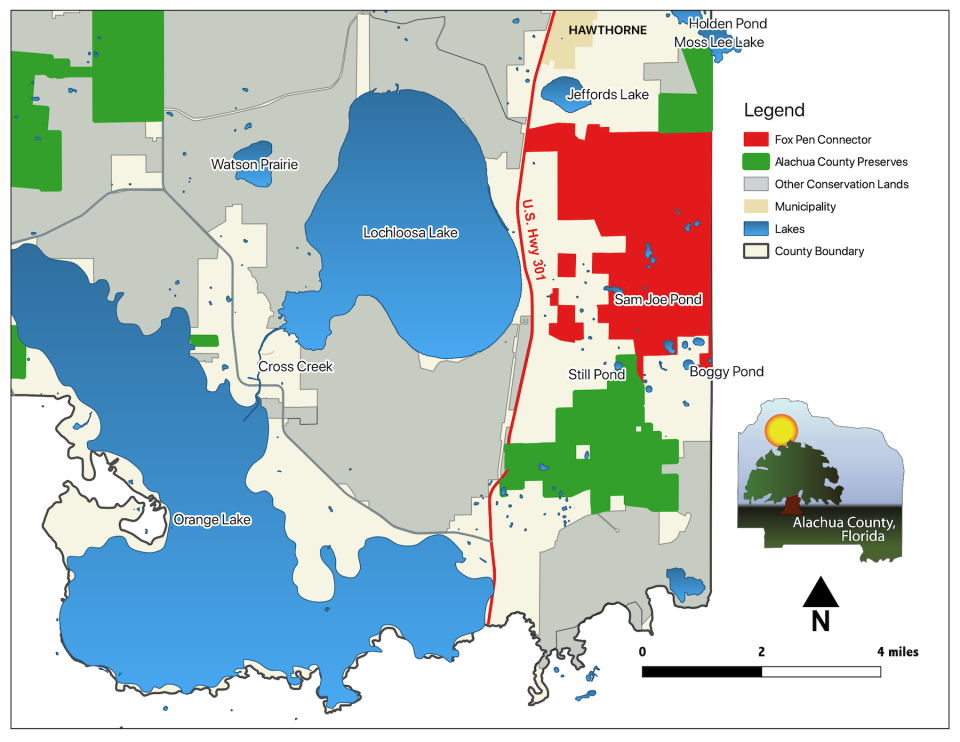A case for continued land conservation in Alachua County

Recent conversations regarding proposed development along Parker Road have rekindled debate over public land conservation in Alachua County. After spending the bulk of my career in the acquisition and management of conservation lands, I will say flat out that it is the fairest and most effective way to protect sensitive environmental resources.
Public ownership of key properties, or property rights in the case of conservation easements, ensures the continued flow of ecosystem services for the benefit of all citizens. This includes clean air and water, wildlife habitat, carbon storage, recreation and more.
All of Florida’s public land conservation efforts are based on voluntary, willing-seller programs. Often, the lands that are least productive for a private owner are those that are most environmentally sensitive. The transfers of such lands to public ownership create true win-win situations.
Studies by 1000 Friends of Florida and others document that public lands generate positive economic returns to private owners, the community and the state. The protection of environmentally sensitive lands in rural areas avoids the higher costs of services if such lands are developed. Taxes generated by dispersed residential development rarely cover the cost of services provided by local government.

Conversely, conservation lands demand few services while at the same time offering amenities and even increased property values to neighboring landowners. In addition, public lands create jobs and other economic benefits through nature-based tourism, other recreational activities, and natural resource management.
The Alachua County Forever program, initiated in 2000, has protected 31,400 acres and has played a key role in the development of a coordinated system of green space within our county. Since the passage of Alachua County’s Wild Spaces and Public Places referendum in 2016, Alachua County Forever has closed on 22 transactions protecting 12,400 acres.
Two of these transactions involved the purchase of conservation easements. These cost-effective arrangements provide permanent protection for the vital environmental resources on the property while leaving the ownership and management responsibility with the private owner.
Notably, the closed transactions include four outright property donations from conservation-minded owners. Two others involved participation by the nonprofit Alachua Conservation Trust (ACT). Not only did ACT provide acquisition funding for portions of the Serenola Forest and Fox Pen projects, it is also providing ongoing savings to the public by assuming the responsibility for management of these properties.
It is certainly appropriate to ask how much public land we need. According to the Florida Natural Areas Inventory, just over 30% of the state has been conserved. Coincidentally, the worldwide 30 by 30 initiative seeks to conserve 30% of every type of habitat by 2030.
Surprisingly, Alachua County lags at about 21% of its 559,360 upland acres. This includes all state parks, county preserves and other lands dedicated to conservation, a total of 117,590 acres as of January. Matching the statewide average would require the addition of roughly 50,000 acres to the existing inventory of conserved land.
The Alachua County Forever staff has proposed a strategy for reaching this target. It builds on the project areas that were identified and prioritized in the early days of the program but focuses on three primary corridors: The Santa Fe River, the Florida Wildlife Corridor in eastern Alachua County and the southern corridor from Orange Lake to Watermelon Pond.

I believe we can now see the end of the land acquisition phase of land conservation in Florida. Over the next decade or so, we will see projects and corridors completed, but we will also see some opportunities lost forever to development. That adds a sense of urgency to the mission of Alachua County Forever, which is to acquire, improve and manage environmentally significant lands that protect water resources, wildlife habitats and natural areas suitable for resource-based recreation.
Our children and grandchildren have the right to know and love Florida the way we have. We have an immediate obligation to protect that opportunity for them.
Charlie Houder is director of the Alachua County Office of Land Conservation and Management.
Join the conversation
Share your opinions by sending a letter to the editor (up to 200 words) to letters@gainesville.com. Letters must include the writer's full name and city of residence. Additional guidelines for submitting letters and longer guest columns can be found at bit.ly/sunopinionguidelines.
Journalism matters. Your support matters.
Get a digital subscription to the Gainesville Sun. Includes must-see content on Gainesville.com and Gatorsports.com, breaking news and updates on all your devices, and access to the eEdition. Visit www.gainesville.com/subscribenow to sign up.
This article originally appeared on The Gainesville Sun: Charlie Houder: The benefits of Alachua County Florida, Wild Spaces

